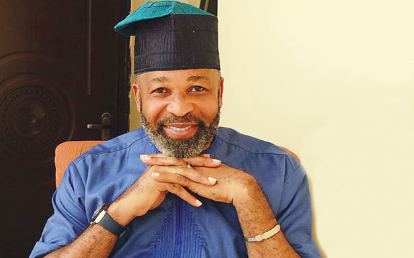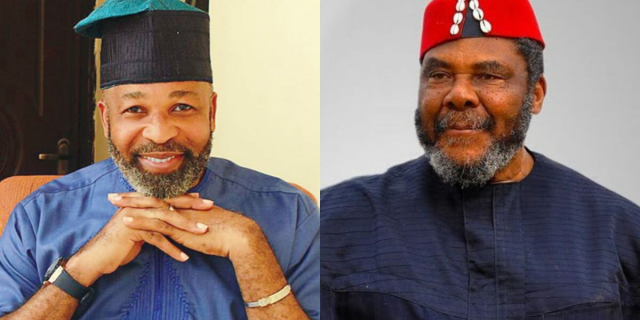Veteran actor Yemi Solade has got tongues wagging after claiming he started acting before the legendary Pete Edochie, even though Edochie is older in age. The unexpected revelation came during an episode of Father’s Path with Tope, where Solade didn’t hold back.
According to Solade, “I’m senior to Pete Edochie. I started acting before him, though he’s older than me. I was 17 in 1977 when I represented Nigeria as the youngest actor. I’ve done 48 years in the industry and I’m still standing.”
Wait first, did you just say Pete Edochie is his junior in acting? Omo! This one go hot.
He went further to clear the air on a long-standing narrative about the birth of Nollywood. According to Solade, the Yoruba film industry laid the foundation for what is now called Nollywood — long before the Igbo-led home video era took off.

He allegedly cited Ade Ajiboye (Big Abass) as the producer of Nigeria’s first home video, giving flowers to other Yoruba icons like Hubert Ogunde, Baba Sala, Ade Afolayan, and Dr. Ola Balogun for shaping the early stages of filmmaking in Nigeria.
“We had film, the celluloid, and everything… Even when home video started, it was just an experiment,” he said.
He also described how Yoruba films were once sold on cassettes displayed on bookshelves in stores — a hustler’s era of grassroots filmmaking.
But here’s the part that raised eyebrows — Solade blamed the underappreciation of Yoruba contributions on lack of documentation.
“My people in the Yoruba setting didn’t document anything. That’s why others claimed they started it. Hey shut up! When people like us are still here, we’ll remind you who started what,” he said with emphasis.
He wrapped it up by name-dropping veterans like Adebayo Salami and Jide Kosoko, saying these living legends can back his claims about the true beginnings of Nollywood.
Side Note:
While Solade’s statements stirred debate online, it’s important to note that Pete Edochie is still widely regarded as a pioneer in the home video era — especially with his unforgettable role in Things Fall Apart in the 1980s.
As for the Yoruba dominance in early Nigerian cinema? Hmm… that one no be today matter. The claim is plausible, but largely undocumented, just as Solade stated.
Watch the full video below…









